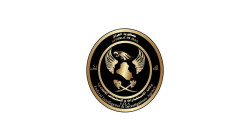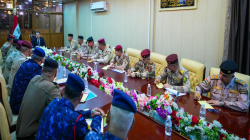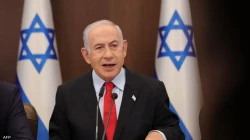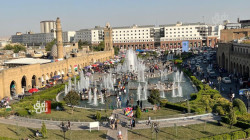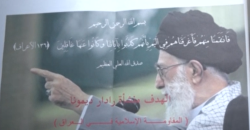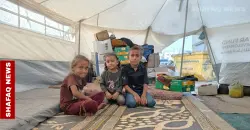Iraq lives on a tightrope: balancing diplomacy and military posture against Israeli threats
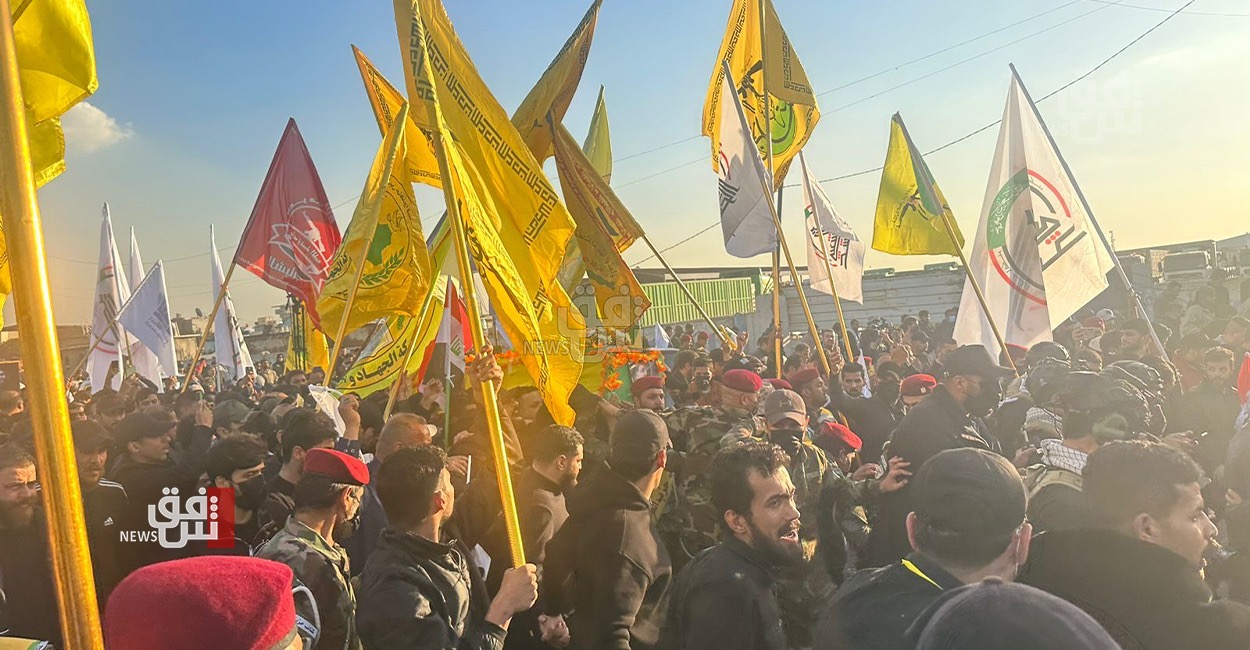
Shafaq News/ As tensions flare across the Middle East, Iraq finds itself at a critical crossroads, with Prime Minister Mohammed Shia al-Sudani grappling to distance the country from escalating conflicts. While balancing close ties with Tehran and efforts to strengthen relations with Washington, Iraq's government faces the challenge of preventing Israeli military actions on its soil and managing the growing influence of Iran-backed forces.
Iran-Backed Factions Escalate Attacks
The Iran-aligned Islamic Resistance in Iraq (IRI), a coalition of Iraqi armed groups, has intensified its military operations since October 2023, citing support for the Palestinian resistance following Israel’s assault on the Gaza Strip. Initially targeting US military bases in Iraq and Syria, the group expanded its attacks to Israeli sites, including the Jordan Valley, Golan Heights, Haifa, and Tel Aviv. The attacks expanded significantly since last September when Israel started a war on Lebanon and engaged in daily military confrontations with Hezbollah.
Notably, most organizations within the Islamic Resistance in Iraq have brigades in the Popular Mobilization Forces, making them, at least in name, affiliated with the Iraqi state. However, these forces operate with growing autonomy within Iraq’s formal security apparatus.
The coalition, part of the broader “Axis of Resistance” comprising groups from Lebanon, Syria, Iraq, and Yemen, conducted its first operation on October 17, 2023. It deployed a Qasef-2K drone to strike the US Harir base in Erbil, marking the beginning of a series of hundreds of attacks against US forces. The group claims its actions are retaliation for “crimes committed by the Zionist occupation [Israel] under American Administration.”
The group’s attacks have drawn US retaliation, with Washington targeting the PMF fighters, leaders, depots, and training centers in Iraq. A step described by the Iraqi authorities as a “violation of sovereignty.”
On October 4, 2024, Israel announced that two of its soldiers were killed in a drone attack launched from Iraq. The following day, Prime Minister Benjamin Netanyahu confirmed that Israel is “defending itself on seven fronts,” including the “Shiite militias in Iraq.” Since then, tensions have escalated inside Iraq, and Baghdad, which rejects the war in Gaza and Lebanon, has intensified its diplomatic efforts to prevent the war from spreading to it.
Moreover, Israel has accused Iraq of enabling Iran to strike Israel through its airspace in April and October when hundreds of Iranian missiles hit Israel.
In November 2024, US military officials stated that drones launched daily from Iraq were targeting Israel. An American security official confirmed approximately five daily launches by Iranian-backed factions hit Israel, complicating the regional security landscape.
To make matters worse, a report by the Washington Institute for Strategic Studies revealed that a group linked to Saudi Arabia claimed responsibility for six attacks on Israel, but they were likely launched from Iraq using drones belonging to the Hezbollah Brigades and/or the Houthis.
“Despite its name, all evidence suggests that MIBH is a facade group established by the Iraqi muqawama (resistance). The language used in the group's statements closely mirrors that of IRI,” the report said.
In light of this, Israel raised the issue to the United Nations, with its foreign minister sending a letter warning Iraq.
Israeli Foreign Minister Gideon Sa'ar held the Iraqi government responsible for "everything happening on its territory," saying, "I sent a letter to the President of the UN Security Council, urging immediate action regarding the activities of Iran-backed militias in Iraq, which are using its territory to attack Israel."
The Israeli FM stressed that “Israel has the right to self-defense, as outlined in the UN Charter, to protect itself and its citizens.”
In his letter, Sa'ar also urged the Security Council to act “swiftly” to ensure the Iraqi government meets its international obligations and halts these attacks on Israel.
Iraqi Prime Minister Mohammed Shia al-Sudani dismissed Israel’s UN letter as a “pretext for aggression,” accusing Tel Aviv of attempting to escalate the war in the region. He reaffirmed that decisions of war and peace “rest solely with the Iraqi state,” emphasizing Iraq’s humanitarian support for Palestinians and Lebanese populations.
The Iraqi National Security Council has also convened an emergency session to assess developments and reinforce the country’s official stance against Israeli threats.
Resistance’s Military Readiness
Israel has tracked 65 drone attacks originating from Iraq since early November, according to the Israeli newspaper Maariv.
The newspaper highlighted a sharp increase in attacks over recent months, from six in August to 31 in September, and 90 in October. Israeli security forces said it successfully intercepted most drones but characterized the attacks as an "operational nuisance" with the potential to escalate into a strategic threat.
While Israel sends warnings against opening another front, Iraq faces internal divisions. Pro-Iranian factions in Iraq, including Asa'ib Ahl al-Haq and the Kataeb Sayyid al-Shuhada, emphasize readiness for escalation.
Salam Al-Jazaeri, a member of the political bureau of the Asa'ib Ahl al-Haq movement, said, "The Iraqi people, government, and resistance are against the Zionist entity [Israel], and the operation targeting Iraq involves key state institutions. Therefore, the duty is to be fully prepared to defend the country's security."
In addition to "full preparedness," Al-Jazaeri, speaking to Shafaq News Agency, called for "strong diplomatic reactions” by the government through the Ministry of Foreign Affairs, sending strong messages to the UN Security Council and influential countries in the UN, as well as “clear messages to the Americans that Zionist threats will harm the interests between America and Iraq."
"The resistance is ready and will respond strongly to the Zionists, and American interests are not far from the resistance's strikes," he said, warning that "strikes on Iraq would mean the region entering a large-scale war with unforeseen consequences."
For his part, Kazem Al-Fartousi, spokesman for the Kataeb Sayyid al-Shuhada, pointed out, "When the resistance factions entered the battle to defend the Arab and Islamic people in Palestine and Lebanon, they knew that the enemy would retaliate against these attacks. Therefore, caution must be taken, and all means should be used to mitigate, prevent, or counter Israeli reactions."
Al-Fartousi stressed to Shafaq News Agency that "everyone must fulfill their duty to protect Iraq from any targeting, whether through diplomatic efforts, by forcing the United States, with which they talk about a strategic security alliance, to defend Iraqi sovereignty as per the agreement, or else the agreement would be one-sided and ink on paper, or by going to the Islamic Republic of Iran and allowing Iranian air defenses to enter Iraqi territory to protect the sovereignty of both countries, establishing joint defense between them."
He added to Shafaq News, "Military efforts are also crucial, and the Iraqi government should consider the Israeli threat as an opportunity to strengthen its air defenses, break the security, commercial, and economic blockade on Iraq by controlling arms contracts and others, and arm Iraq with weapons capable of defending its sovereignty. Iraq cannot remain weak and continue to face threats."
The Islamic Resistance in Iraq relies on advanced weaponry, including drones, Arqab cruise missiles, and the newly introduced “Sarem” short-range smart missile. However, security expert Mukhallad al-Darb attributed Iraq’s reliance on diplomacy to its limited military capacities.
"Iraq does not possess sufficient military deterrents to respond to the Zionist entity if it targets sites within the country. However, there is a clause in the Strategic Framework Agreement with the United States that allows the US to protect Iraq in the event of any external aggression."
Notably, the Strategic Framework Agreement for a Relationship of Friendship and Cooperation between the United States and the Republic of Iraq outlines long-term cooperation in seven key areas, including defense and security. However, the agreement does not commit the US to defend Iraq from internal threats or external invasions but focuses on enhancing Iraq's ability to protect its sovereignty, security, and territorial integrity through cooperation without violating its sovereignty.
Al-Darb explained to Shafaq News, "Therefore, the Iraqi government is seeking a diplomatic solution, and there are ongoing talks and a dialogue table between the government and all parties, including factions and external actors, to keep Iraq away from such targeting and prevent the country from being dragged into the conflict."
Israel Focuses on Gaza and Lebanon
Currently, Israel's primary focus is on Lebanon and Gaza, where its military resources are heavily deployed. As a result, observers suggest that threats from the Iraqi Resistance have not yet escalated to a priority level.
Israeli newspaper Maariv reported that Israel's contingency plans for escalation from Iraq would begin with strikes on infrastructure and facilities, followed by targeted assassinations of key figures within armed factions. Israel has already taken military action against drone attacks from the Houthis in Yemen, targeting the vital port of Hodeidah, indicating that a similar response to Iraqi threats is possible.
Such discussions have already surfaced in Israel. Last October, Israeli Channel 14 published a photo of prominent Iraqi religious leader Ayatollah Ali al-Sistani as part of a list of potential assassination targets. This led the Kataib Sayyid al-Shuhada faction to declare that al-Sistani is "above all red lines."
Despite these developments, there are no clear signs that Israel is planning immediate military action in Iraq. Analysts suggest that while these factions pose a strategic nuisance, they do not yet represent an immediate threat that would trigger a large-scale Israeli response.
Whatever the scenario, Iraq remains steadfast in its diplomatic efforts.
Iraq’s Diplomatic Stance
The Iraqi government, led by Prime Minister al-Sudani and aligned with the “Coordination Framework” — a parliamentary majority of pro-Iranian Shiite parties and Popular Mobilization Forces representatives — has pursued a policy of solidarity with Lebanon and Gaza but tried to distance itself from the conflict, despite its close ties to Tehran.
Al-Sudani has worked to strengthen Iraq's relationship with the United States, positioning the country as a mediator rather than a battleground and prioritizing diplomacy.
Iraq’s diplomatic strategy centers on securing Western support for its stance and deterring Israel from aggressive actions against the country. Al-Sudani also tasked the Foreign Ministry with pushing for a unified Arab response to Israeli threats.
Political researcher Ahmed al-Yasiri noted that “Iraq's diplomatic efforts are aimed at preventing Israel from escalating the conflict into Iraqi territory.”
He pointed to Al-Sudani’s communications with US President Donald Trump, signaling a shift in coordination from President Biden's administration to Trump’s as part of these efforts.
In a message on X, Al-Sudani reaffirmed Iraq’s commitment to strengthening relations with the US, indicating Iraq’s desire to stay out of the conflict.
Al-Yasiri emphasized, “Iraq’s internal focus must be on managing its factional groups to avoid any attacks on Israel from Iraqi soil, which could serve as a pretext for Israeli military action, as seen with Lebanon and Hezbollah.”
Iraq has consistently rejected the use of its airspace or territory for attacks on other nations, with National Security Adviser Qasim al-Araji reiterating this position during a recent visit to Tehran.
Despite these diplomatic efforts, analysts remain skeptical about Al-Sudani’s ability to fully control hardline factions, whose independent actions complicate the government’s efforts to prevent further escalation.
